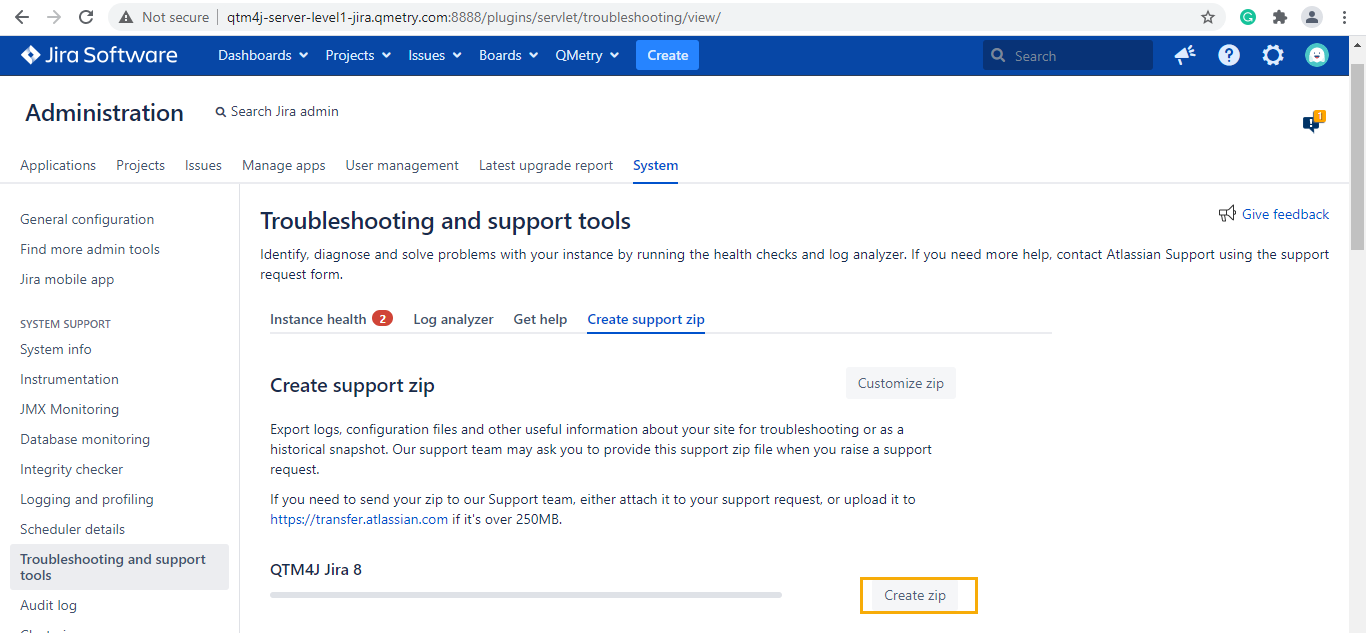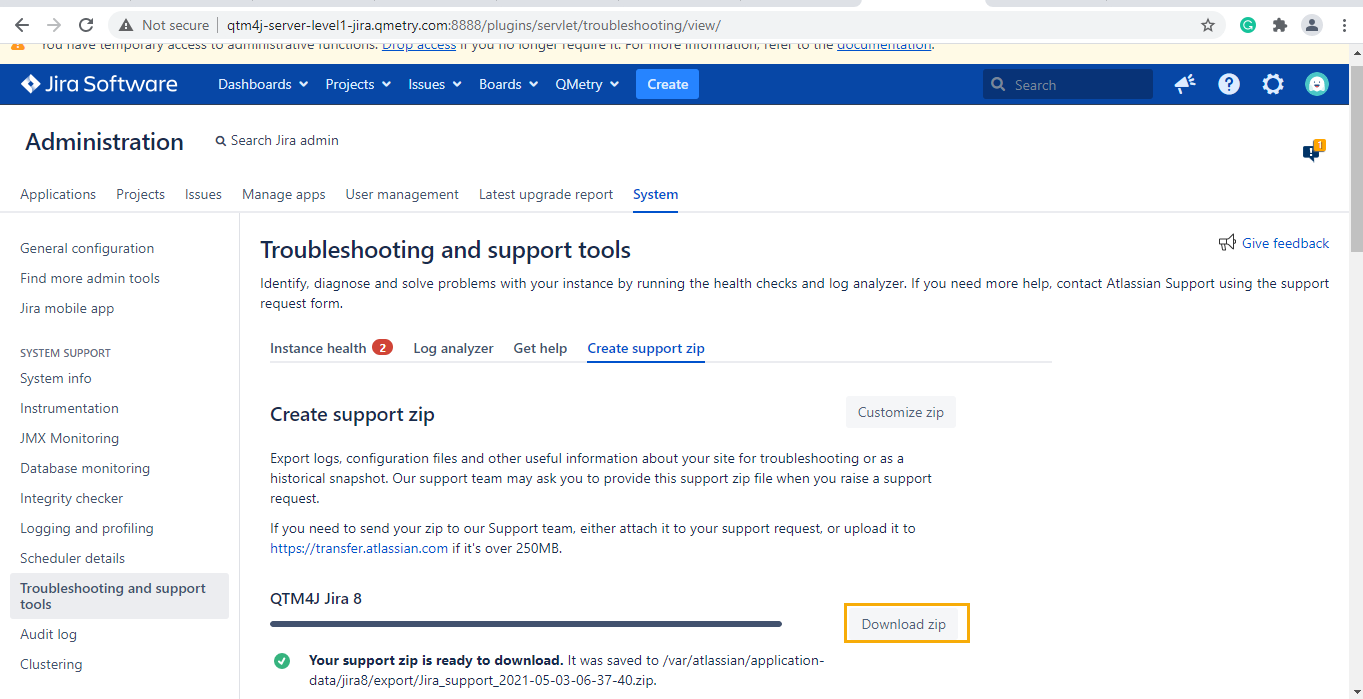...
Navigate to Setting ->System -> Logging and Profiling tab
Enable SQL Loggings for SQL log & SQL dump logs
Scroll the same page below to go to the Default Loggers section and click on Configure link.
Enter Package name as “com.qmetry” and Logging level as “Debug”. Click on Add.
In Default Loggers search for the following Package Name and click on “Trace” for the below 3 packages:
net.java.ao.sql
net.java.ao.schema.SchemaGenerator
Enter Package name as “com.atlassian.jira.ofbiz” and set the log level to “Error”.
Once these settings are changed, reproduce the issue on your JIRA instance, so that traces are logged.
Start marking JIRA logs for troubleshooting purposes (e.g.: Replication starts here).
After all steps are completed for reproducing the issue, stop marking the logs (e.g.: Replication ends here)
How to access JIRA Server Logs
Navigate to Setting ->System -> Troubleshooting and Support Tools tab
Go to the create support zip tab
For Server: Click on the create zip button and download the logs as shown in the below screenshot:
For Datacenter: Click on the create zip button for all the nodes and download the logs as shown in the below screenshot:
...
Alternatively, you can opt for the below option:
Go to the directory where you have installed JIRA on your server. Fetch the JIRA logs & share atlassian-jira.log and Catalina log files with QMetry Support.
For UNIX server: If the directory name is JIRA. You can access logs at JIRA/logs/catalina.out and JIRA/home/log/atlassian-jira.log. In case you do not find the files, trigger the below commands in the UNIX terminal which would fetch the list of logs files path.
find / -name "atlassian-jira.log" 2>/dev/null
find / -name "catalina.out" 2>/dev/null
For Windows server : You can access logs from C:\Program Files\Atlassian\JIRA\logs\catalina<Date>.log and C:\Program Files\Atlassian\Application Data\JIRA\log\atlassian-jira.log
...


